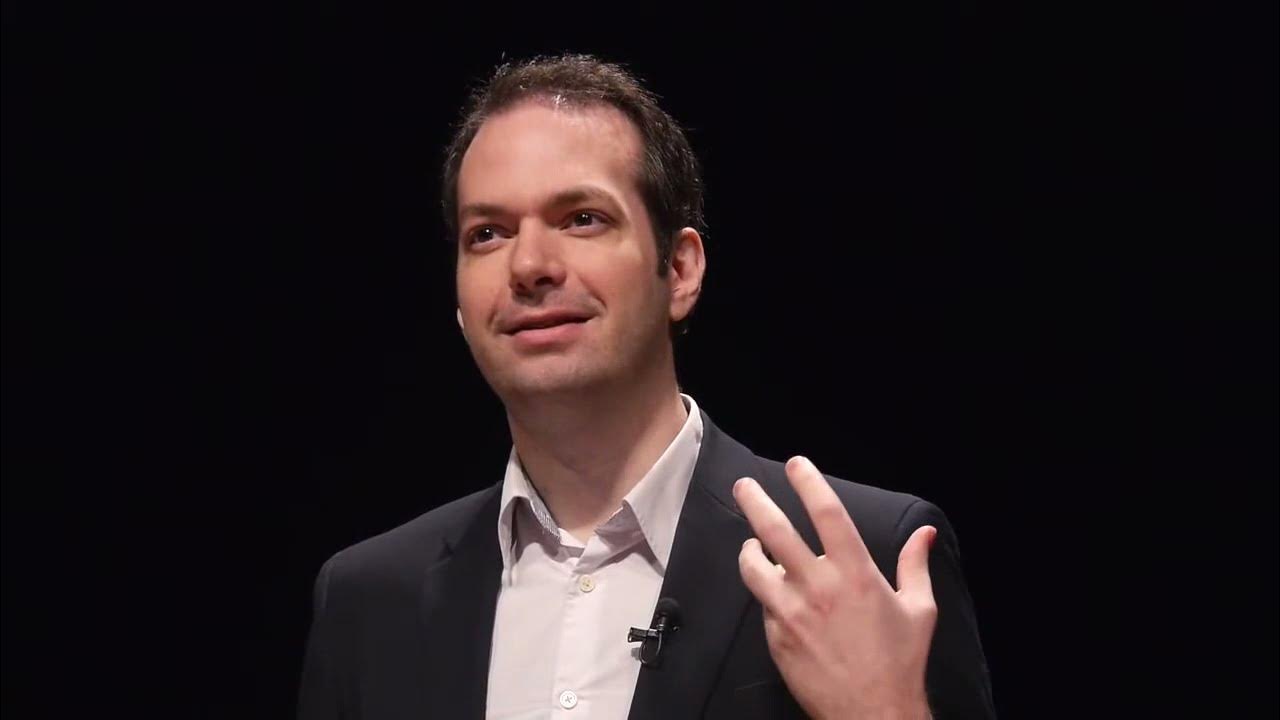Peter Senge Introduction to Systems Thinking
Summary
TLDRThe speaker cautions that the label “systems thinking” is often misleading: people imagine computer systems or management excuses, which obscures its true purpose. Instead, the speaker reframes systems as interconnected webs of relationships — like a family — where complex interactions produce persistent, unintended consequences. By grounding the idea in everyday examples, listeners can see how stubborn, vexing problems arise from interdependence rather than lone causes. The goal isn’t abstract theory but practical insight: understanding these dynamics gives leverage to identify different actions that can change outcomes and address problems more effectively.
Takeaways
- 😀 The term 'systems thinking' is complex and can be misunderstood. The word 'system' itself is often associated with computer systems or management control systems, which are not the focus of this approach.
- 😀 The word 'system' is often problematic, as it conjures images of technical or managerial systems, which can be misleading in the context of systems thinking.
- 😀 The speaker uses the example of a family to help people understand the concept of systems, highlighting how people’s actions and feelings can result in unintended consequences.
- 😀 In a family, despite being able to identify the key people involved, the interactions among them are complex and lead to outcomes nobody intends.
- 😀 The focus of systems thinking is not to understand abstract systems but to understand the causes of complex, persistent problems in real-world situations.
- 😀 One key purpose of systems thinking is to gain insight into how difficult problems arise, enabling people to identify ways to address them more effectively.
- 😀 The problems that systems thinking addresses are often 'vexing and intransigent,' meaning they are persistent and challenging to solve without the right perspective.
- 😀 The aim of systems thinking is to understand the underlying structures and interdependencies that lead to the problems people experience in systems, such as families or organizations.
- 😀 The interdependence within systems like families shows how individual actions can create ripple effects that lead to unintended consequences, which is central to systems thinking.
- 😀 The speaker emphasizes that systems thinking is about recognizing and responding to complex relationships, rather than applying oversimplified or reductionist solutions.
Q & A
What is the main issue with the term 'systems thinking'?
-The term 'systems thinking' is problematic because both words—'system' and 'thinking'—carry associations that may mislead people. 'System' often makes people think of a computer system or management control system, which doesn't align with the intended meaning of systems thinking in this context.
Why is the word 'system' considered the most problematic in this context?
-The word 'system' is problematic because it is commonly associated with technical fields like computer systems or control systems. These associations lead to misunderstandings, as the concept being discussed is not related to these narrow definitions of 'system.'
What are the two most common associations people have with the word 'system'?
-The two most common associations with the word 'system' are: 1) a computer system that requires technical expertise, and 2) a management control system, often used to excuse problems by blaming 'the system' itself.
How does the speaker help people understand the concept of 'systems thinking'?
-The speaker starts by asking people if they are part of a family, and whether they’ve seen how family dynamics can produce unintended consequences. This helps ground the concept of systems thinking in real-life experiences, illustrating the complexity of interdependencies without resorting to technical jargon.
What is the significance of using the family example in explaining systems thinking?
-The family example is used to illustrate how people in interconnected systems (like a family) can unintentionally produce outcomes that no one desires. This analogy helps people grasp the complexity of systems thinking in a relatable and non-abstract way.
Why does the speaker suggest using the family as an example rather than using technical jargon?
-Using a family as an example avoids jargon and allows individuals to connect with the idea of systems thinking on a personal level. It shows that even in familiar, everyday environments, complex interactions lead to unintended consequences, making the concept easier to understand.
What kind of problems is the speaker referring to when discussing systems thinking?
-The speaker is referring to complex, intractable problems—those that are difficult to resolve and persist over time. These are the types of problems that systems thinking aims to understand, providing a perspective that could potentially offer solutions or new insights.
What does the speaker mean by 'webs of interdependence'?
-The term 'webs of interdependence' refers to the interconnected relationships and dependencies that exist within any system. In a family, for instance, each person's actions, feelings, and behaviors influence others, creating a complex web that shapes the outcomes within the family unit.
What is the speaker’s goal when discussing systems thinking and understanding problems?
-The goal is not simply to understand systems as abstract concepts, but to gain insights into why difficult and persistent problems arise. This understanding is intended to help people find leverage points or strategies to address these problems more effectively.
How does the speaker view the role of systems thinking in addressing societal issues?
-The speaker views systems thinking as a tool for gaining perspective on complex societal issues. By understanding how different factors within a system interact, individuals can gain insights into how to approach and potentially resolve long-standing or difficult problems.
Outlines

このセクションは有料ユーザー限定です。 アクセスするには、アップグレードをお願いします。
今すぐアップグレードMindmap

このセクションは有料ユーザー限定です。 アクセスするには、アップグレードをお願いします。
今すぐアップグレードKeywords

このセクションは有料ユーザー限定です。 アクセスするには、アップグレードをお願いします。
今すぐアップグレードHighlights

このセクションは有料ユーザー限定です。 アクセスするには、アップグレードをお願いします。
今すぐアップグレードTranscripts

このセクションは有料ユーザー限定です。 アクセスするには、アップグレードをお願いします。
今すぐアップグレード関連動画をさらに表示

Mengapa Semua Orang Ingin Jadi Sigma Male?

Is This NEW Probiotic a Gut Microbiome Miracle? Akkermansia Muciniphila

DFS101: 1.1 Introduction to digital forensics

PENGANTAR TEKNOLOGI INFORMASI, DEFENISI DAN KLASIFIKASI SISTEM DALAM TEKNOLOGI INFORMASI

A Sign From Allah — Just for You 🤍✨ Don’t Ignore This #allah

Future Thinking | Jim Davies | TEDxCarletonUniversity
5.0 / 5 (0 votes)
